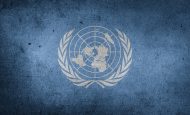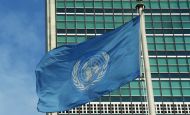Analysis: CERD Concluding Observations on Israel
Introduction
On December 16, 2019, the Committee on the Elimination of Racial Discrimination (CERD) published its concluding observations from its review of the State of Israel. Unsurprisingly, the Concluding Observations parrot unverified and false claims by non-governmental organizations (NGOs) active in antisemitism, BDS (boycott, divestment, and sanctions), and other delegitimization campaigns against Israel. NGO Monitor provided a submission to the Committee and participated in the Committee meetings on December 2 and 4, 2019.
The primary purpose of the CERD review is to discuss and evaluate the situation relating to a country’s racial discrimination of its own citizens, as outlined in the International Convention on the Elimination of Racial Discrimination (ICERD). Yet, the Concluding Observations largely focus on “Jewish and non-Jewish” issues, primarily non-citizen Palestinians. The diverse set of minorities within Israeli society and the Jewish community are almost entirely erased. Jewish minorities only received a total of two generic sentences in the entire 12-page report, and just one of these mentions the Ethiopian population. Issues facing other Jewish minorities, including but not limited to individuals of various Mizrachi origins and Jews from the former Soviet Union are completely ignored by the Committee.
In furthering the discriminatory nature of the Committee, an Israeli Arabic speaking official was unable to give his presentation to CERD during the two-day formal review process. This was due to the fact that the UN failed to provide an Arabic language translator, even though Arabic is one of the official UN languages.
Additionally, organizations calling out bias in the CERD review process were given significantly less time to speak than Palestinian NGOs and/or those representing the Palestinian agenda. Specifically, the Secretary of CERD decided that since some of the Palestinian NGOs presented their submissions as a coalition, the three individual representatives there would have 18 minutes total to speak, whereas the two individuals from independent watchdog organizations would only get 3-4 minutes each.
Ignoring Treaty Language
The Committee’s concluding observations, ironically, ignore multiple aspects of the ICERD treaty, the instrument to which the Committee is tasked with reviewing country compliance.
In particular, in Article 1.2, the treaty makes an important distinction between citizens and non-citizens, noting “This Convention shall not apply to distinctions, exclusions, restrictions or preferences made by a State Party to this Convention between citizens and non-citizens.” However, as stated above, almost all of the concluding observations relate to non-citizen Palestinians that fall under the jurisdiction of the Palestinian Authority.
The concluding observations also ignore Article 1.4, which states that “special measures taken for the sole purpose of securing adequate advancement of certain racial or ethnic groups or individuals requiring such protection as may be necessary in order to ensure such groups or individuals equal enjoyment or exercise of human rights and fundamental freedoms shall not be deemed racial discrimination…” Under this article, it is fully in keeping with the treaty and human rights principles for Israel to promote Jewish culture and history, as well as to serve as a refuge for the Jewish people. Yet, the Committee denigrates these measures.
Article 4 is also ignored by the Committee, instead adopting fringe NGO arguments (detailed below) opposing Israeli laws addressing hate speech, incitement, and racial discrimination. In this skewed logic, and directly in opposition to ICERD, the Committee finds it problematic that Israel would enact measures to prevent violence against Jews.
Additionally, in an exploitation of the CERD treaty by the Palestinian Authority, the CERD Committee improperly opted to “review Palestinian complaints that Israel’s policies in the West Bank amount to apartheid” despite the fact that the UN legal advisor ruled that it did “not have the authority to handle the subject.”
Copy and Paste of False NGO Claims
NGO Monitor notes the following claims that are near copy and paste of NGO reports submitted to the Committee and/or information from oral presentations made to the Committee during a December 4, 2019 briefing.
Concluding Observation 13: Basic Law: Israel – The Nation State of the Jewish People
The Committee echoes claims made by Norwegian Refugee Council, Adalah, Al-Haq, BADIL, Habitat International Coalition (HIC), and Cairo Institute for Human Right Studies that Israel’s 2019 Basic Law calls for “settlements” in the West Bank as a “national value.” This demonstrates the Committee’s failure to read publically available and official translations of the law that state that “The State views the development of Jewish settlement as a national value…” (emphasis added) in line with upholding the concept of self-determination for the Jewish people. The Committee appears to improperly claim that promoting the majority culture of a State is by definition the equivalent of racial discrimination or that such promotion somehow excludes the protection of minority rights. The Committee similarly repeats Al-Haq, BADIL, HIC, and Cairo Institute’s claim of “downgrading the status of the Arabic language,” ignoring the line in the Law that “Nothing in this article shall affect the status given to the Arabic language before this law came into force.”
Concluding Observation 17: Institutional Framework
The Committee gives credibility to the offensive claims made by Al-Haq, BADIL, HIC, and Cairo Institute in their joint NGO submission regarding Jewish institutions. The Committee states that it is “concerned at reports about the unclear status and activities of certain quasi-government entities, which carry out specific decision-making functions without being part of the executive structure,” ignoring Article 2 (2) of the Convention they are tasked with upholding. It is also clear that the Committee does not understand the functions of the organizations in question, namely JNF and WIZO, nor that the many of the services they provide (ex. establishing and protecting national parks) benefit all Israelis.
Concluding Observation 21: Segregation between Jewish and non-Jewish communities, including in the Occupied Palestinian Territory
The Committee claims that it is concerned that “Israeli society continues to be segregated as it maintains Jewish and non-Jewish sectors, including two systems of education with unequal conditions, as well as separate municipalities, namely Jewish municipalities and the so-called ‘municipalities of the minorities’, which raises issues under article 3 of the Convention.” They add that “in the Occupied Palestinian Territory, the Committee remains concerned (CERD/C/ISR/CO/14-16, para. 24) at the consequences of policies and practices which amount to segregation, such as the existence in the Occupied Palestinian Territory of two entirely separate legal systems and sets of institutions for Jewish communities in illegal settlements on the one hand and Palestinian populations living in Palestinian towns and villages on the other hand… Such separation is materialized by the implementation of a complex combination of movement restrictions consisting of the Wall, the settlements, roadblocks, military checkpoints, the obligation to use separate roads and a permit regime that impacts the Palestinian population negatively (art. 3).”
This false claim of “segregation” echoes Al-Haq, BADIL, OCHR, Al Mezan, Addameer, CCPRJ, Cairo Institute, HIC, and Adalah and is inflammatory language aimed at demonizing Israel. Notably, the Committee does not refer to any specific municipalities, roads, laws, etc. to provide any evidence to its claim of racial segregation. The Committee also ignores that various sectors of Israeli society – particularly religious groups– choose to educate their children in accordance with their own beliefs and that such education is publicly supported. Similarly, for nationalist reasons, Palestinians living under Israeli jurisdiction purposely seek separate educational systems and vehemently oppose efforts by the Israeli government to implement reforms such as requiring the teaching of English in such schools. Were Israel to require all communities to conform to a single educational curriculum, would the Committee also denounce this as discriminatory?
Furthermore, the Committee again ignores the Convention under which it is supposed to evaluate State behaviour. Indeed, the Convention notes in Article 1 (2) that “This Convention shall not apply to distinctions, exclusions, restrictions or preferences made by a State Party to this Convention between citizens and non-citizens” as would apply to the differences between Israelis (citizens) and Palestinians (non-citizens). Additionally, according to the occupation paradigm the Committee applies, Israeli is forbidden from applying Israeli law to “occupied” areas. Such complaints suggest the Committee is demanding that Israel annex such areas and incorporate them into Israel.
Concluding Observation 26a: Racist Hate Speech and Hate Crimes
The Committee clearly parrots a submission made by a notoriously antisemitic Hebrew University professor in its claim regarding racist hate speech found in school curricula and textbooks. The Committee provides no examples of this apparent hate speech.
Concluding Observation 29: Situation of the Bedouin people
The Committee repeats a claim furthered by the Negev Coexistence Forum during the December 4 briefing with Committee members that Israel should “recognize all unrecognized villages in the Naqab.” The Committee ignores the serious legal, environmental, and political complexities, as well as compromise policy options that have been proposed. These plans were denounced by NGOs and activists simply because they did not endorse their sectoral demands (see NGO Monitor’s submission for details).
Concluding Observation 36: Participation in public and political life
The Committee parrots Adalah’s claim that somehow a law meant to increase the election threshold for parties, which affects all parties equally, is somehow inherently discriminatory to non-Jewish minorities. In fact, since its application, this law most notably affected a right-wing party, preventing it from gaining Knesset seats. In contrast, because of the law, the Arab Joint List party earned 13 seats in the September 2019 election – the third largest number of seats of all parties and increasing its total from previous elections.
Concluding Observation 40e: Situation of migrants, refugees, asylum-seekers and stateless persons
The Committee reiterates an issue that was left unaddressed in the NGO discussions on December 2 and December 4 regarding claims of “the revocation of the citizenship of Bedouin persons without due process.” As noted in these sessions, so-called NGO experts were unfamiliar with these cases. It is therefore unclear what information the Committee is basing this claim on.
Concluding Observation 42: Access to natural resources
The Committee ignores mutually agreed and international brokered agreements, such as the Oslo Accords, that determine the distribution of natural resources, water, and other such divisions between Israel and the Palestinian Authority. Additionally, this claim, which again provides no concrete examples, is nearly word-for-word of unverified claims made in the submissions of Al-Haq, BADIL, PCHR, Addameer, CCPRJ, Al Mezan, Cairo Institute, HIC, and NRC.
Concluding Observation 45: Ongoing blockade of the Gaza Strip
The concluding observation ignores both the context of terror and violence in Gaza and fails to note that Israel already allows humanitarian aid to enter Gaza. The Committee provides no examples of Israel failing to provide humanitarian assistance. The Committee also fails to detail what it means when it calls on Israel to allow the “right to freedom of movement, housing, education, health, water and sanitation.” Given that Israel withdrew from Gaza in 2005, local responsibilities, including those mentioned above, fall on the local authorities, i.e. Hamas. In addition, Gaza shares a border with Egypt, and the artificial attempt to hold Israel responsible ignores this basic fact.
This claim echoes the submissions presented by NRC, BADIL, PCHR, Addameer, CCPRJ, Al Mezan, Cairo Institute, HIC, and NRC.


